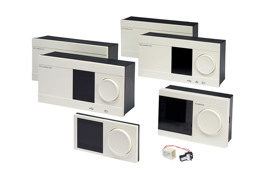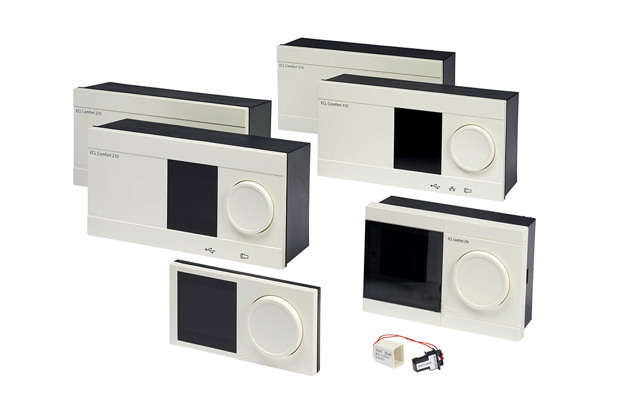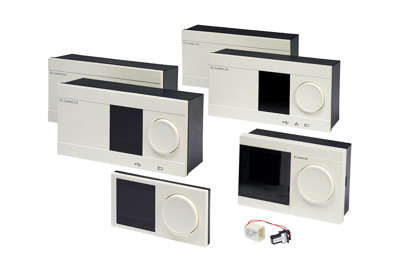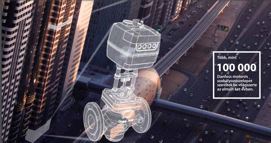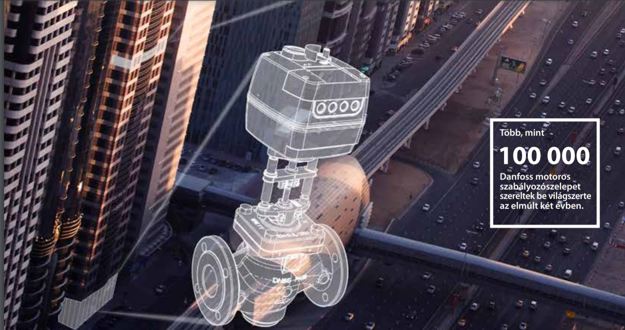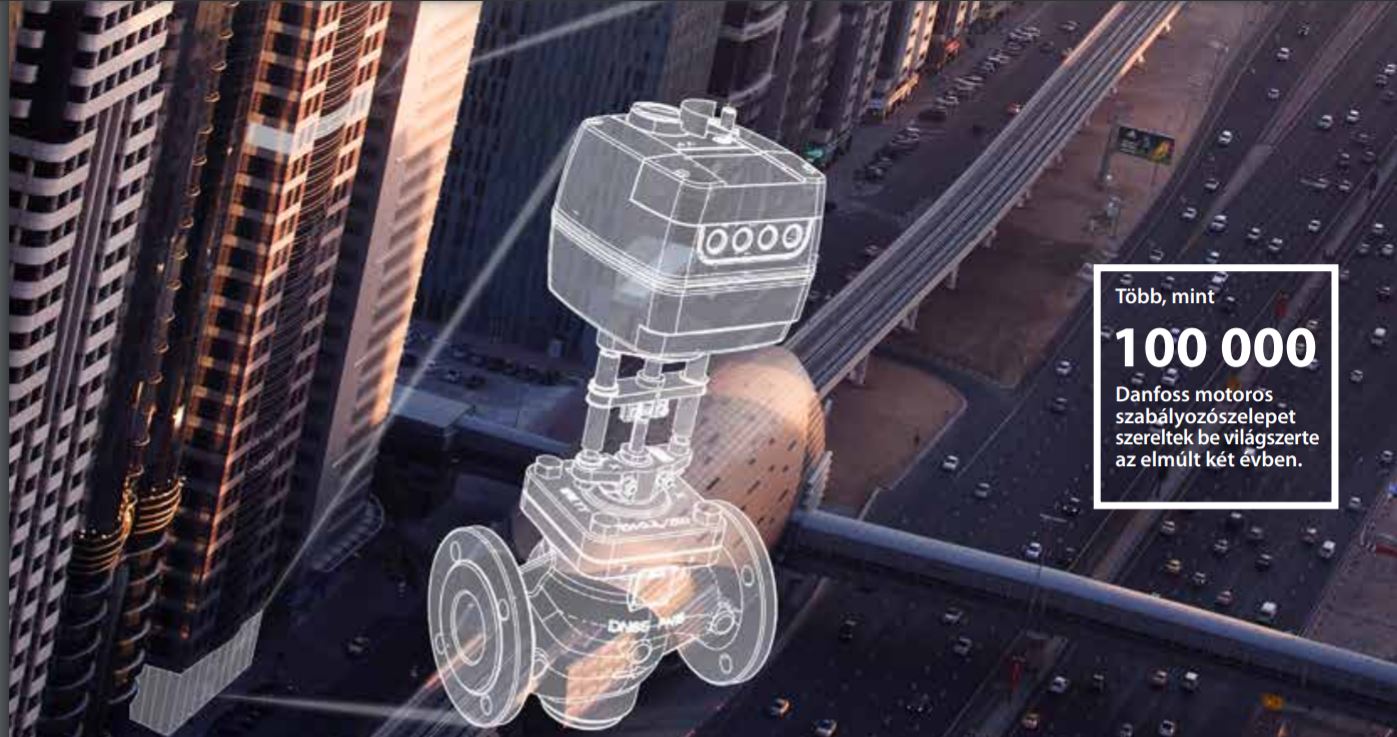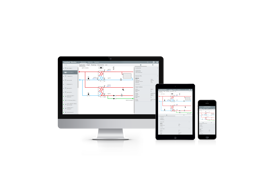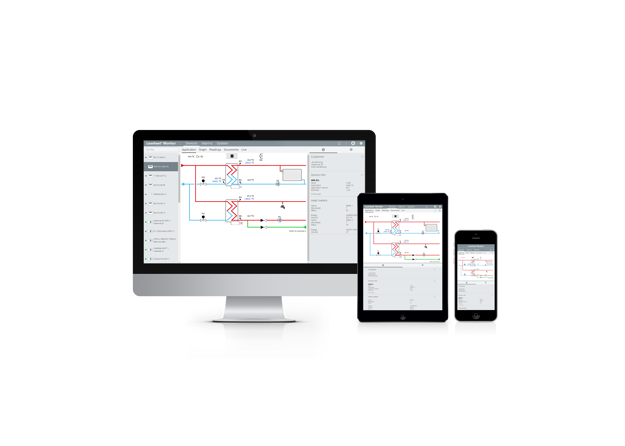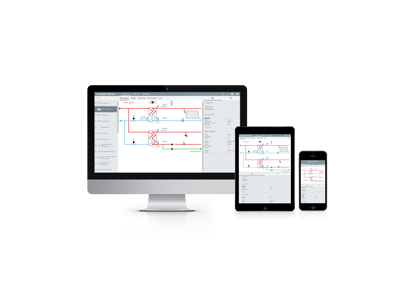What is Virtus?
Virtus is Danfoss‘ series of digital empowered pressure and flow controllers for hydronic balancing and control in district heating and cooling networks. Optimal hydronic balance can result in up to 20% energy saving and improved comfort because of perfect temperature (delta T) control. Virtus is a range of heavy duty differential pressure regulators and flow regulators for demanding district heating and cooling applications. They are designed to be used in power plants for energy production, transportation networks, distribution network stations and subscriber (building) substations.
There are 2 different technical principles
DPC (Differential Pressure Controllers, in most cases used in combination with a Motorized Control Valve (MCV)) with these type of control options:
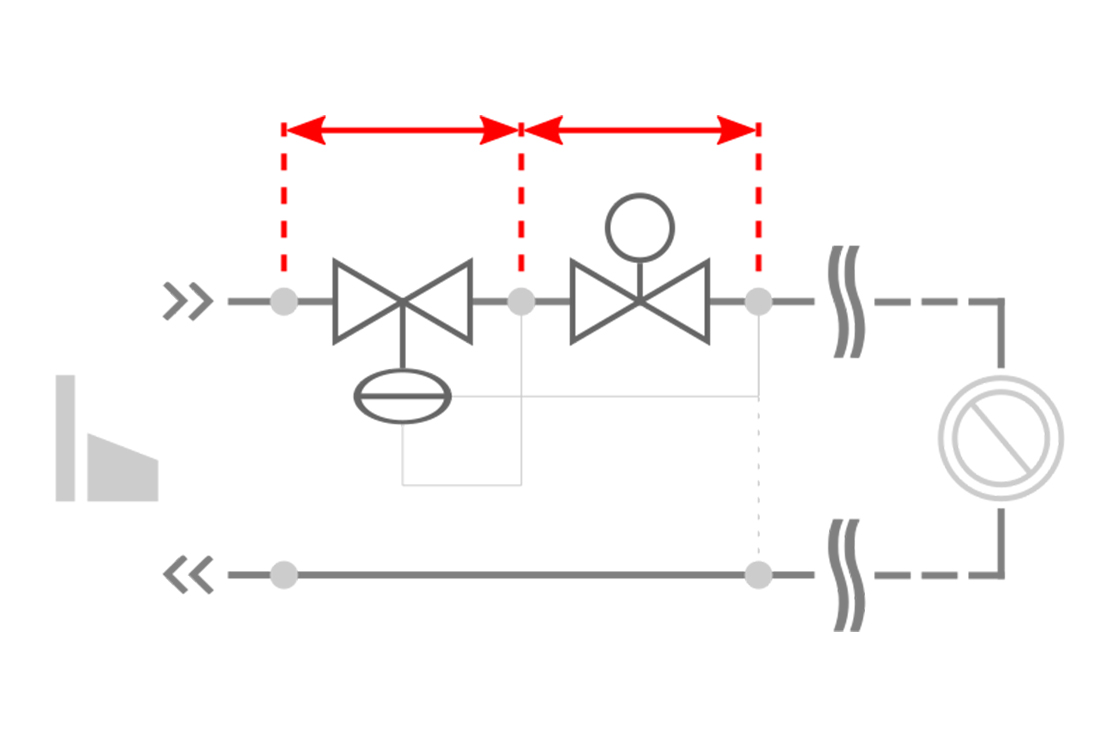
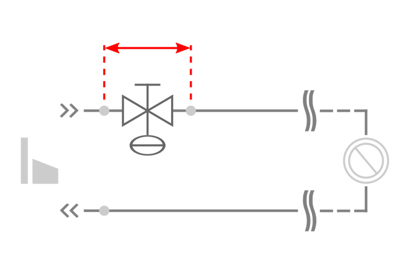
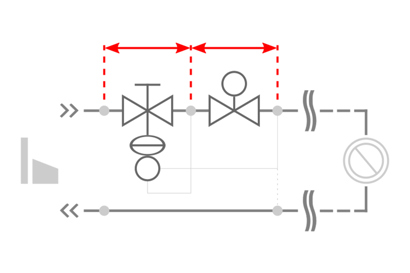
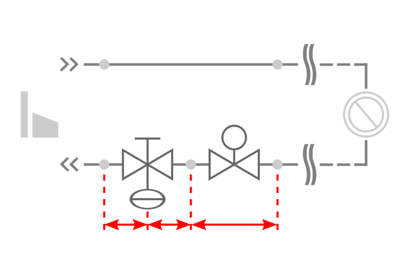
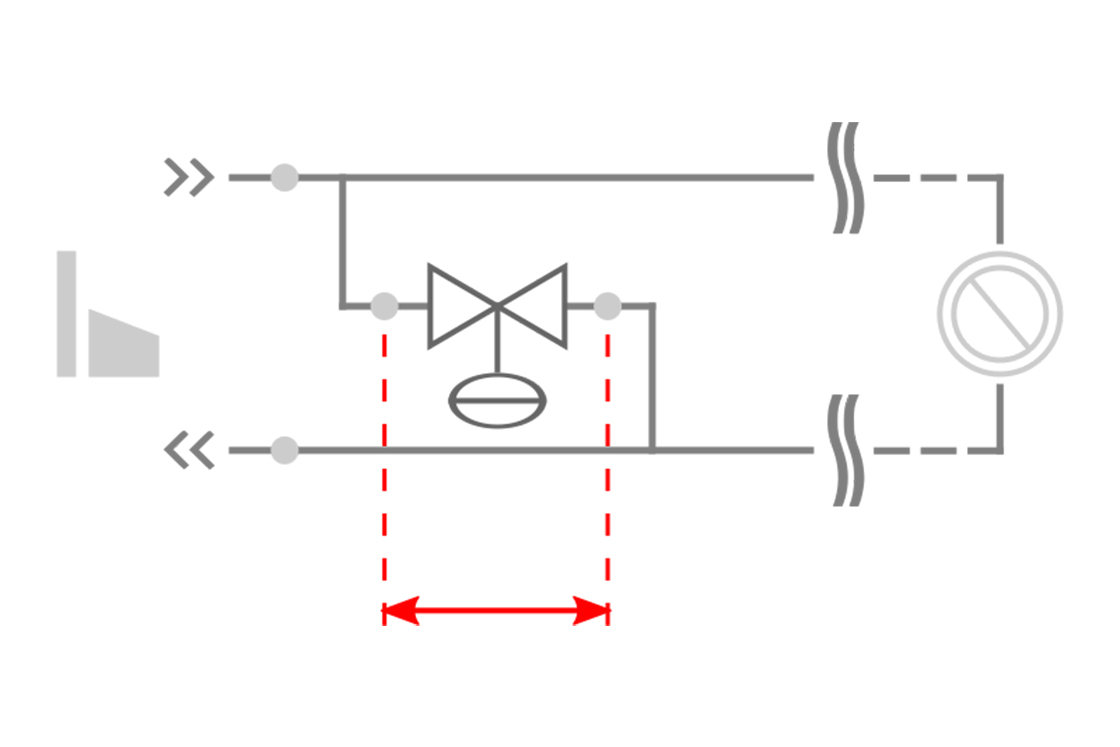
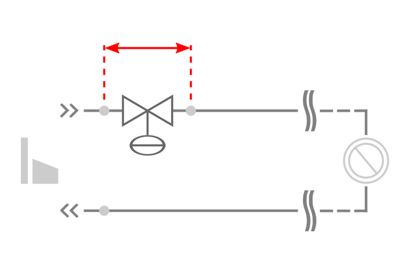
PICV (Pressure Independent Control Valves with integrated flow limiter) with these type of control options:
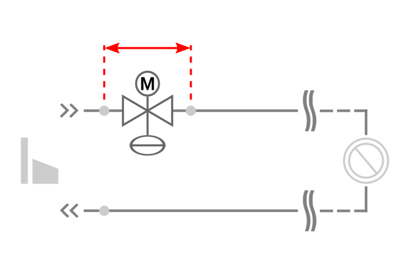
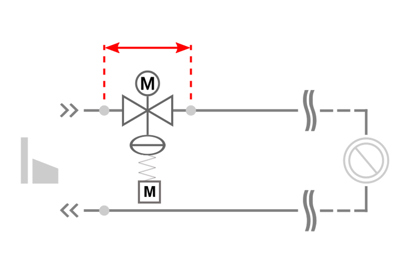
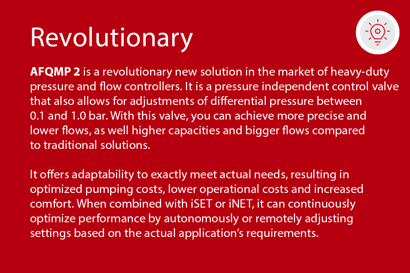
Digital optimization with iSET and iNET
All Virtus controllers are build-up from a valve and a pressure actuator (also known as a pressure regulator) and are self-acting. This means they work independent of electrical energy, ensuring a high level of reliability. Most of the controllers can optionally be equipped with a remotely accessible digital actuator to optimize the performance. There is iNET functionality for intelligent NETwork balancing and iSET functionality for intelligent substation SETting. Via AMEi 6 digital actuators the set pressure or flow on the Virtus pressure actuator is electronically adjusted to increase stability and precision in especially partial load system conditions.
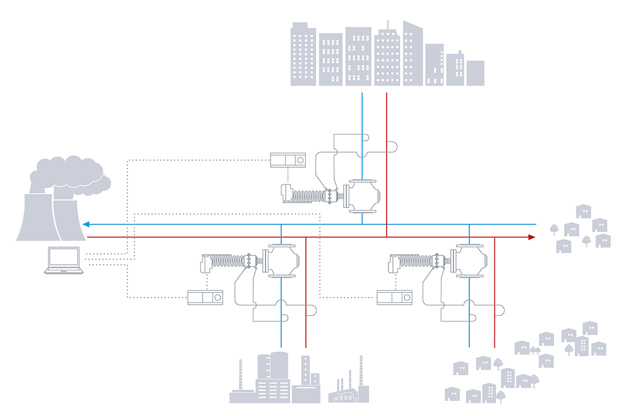
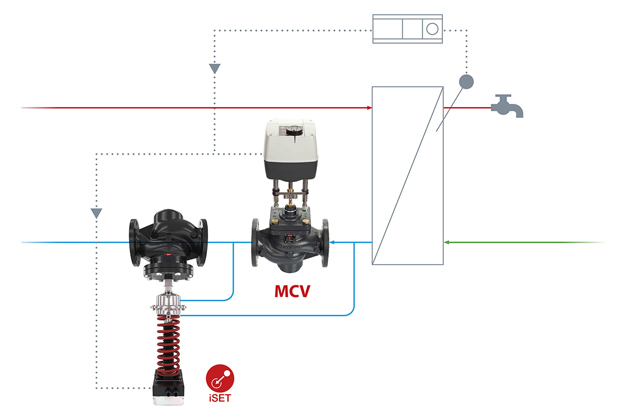
Retrofit solution with existing valves
Many pressure or flow controllers are found in existing situations. Here it is challenging or undesirable to exchange for a Virtus solution. For these situations where Danfoss VFG 2 or VFQ 2 valves are already in use, there is low-impact Virtus retrofit solution. The valve can continued to be used, just the pressure actuator is replaced for a Virtus actuator. All that's needed is a special adapter and (a) new impulse tube(s). Most of the new Virtus pressure actuators can also be utilized for digital optimization with iNET or iSET.
Virtus‘ key benefits
Perfect control and stability
Efficient network hydronic balancing and ΔT optimization with advanced pressure and flow controllers ensure perfect control and stability. The design eliminates dynamic sealing, resulting in low hysteresis and optimal pressure conditions for balancing. Improved control and accuracy are achieved through split characteristic and high control ratio. Perfect hydronic balancing improves ΔT, reducing operational costs and improving system efficiency. Increasing ΔT by 3° can reduce primary energy generation costs by at least 1%.
Big flow capacities
Big flow capacities and optimal network design reduces investment costs and improves network efficiency. By using smaller valve DN with "XXL" flow capacity and proper network planning, investment costs can be reduced by up to 17% compared to traditional designs. Virtus provides the best flow/investment ratio.
Remote and dynamic range-ability
Simply and remotely increase the control ratio up to 300:1. The optional upgrade with intelligent solutions iSET or iNET, allows for remote adjustments to pressure settings. This increases the control ratio, also known as range-ability. By setting the pressure to the maximum value, the maximum flow can be increased, while lowering the pressure setting to the minimum value decreases the minimum flow. By adding the dynamic AMEi 6 actuator with iSET or iNET functionality, the range-ability can be increased up to 300:1.
Easy installation, commissioning and maintenance
The compact pressure and flow controllers offer optimal network design and low investment costs. With their compact design and multiple installation positions, they save up to 20% of installation space. No-tool flow adjustment, easy flow/Δp setting and visible indication ensure trouble-free commissioning and operation, reducing costs.
Digital empowered for additional benefits
Having installed iSET or iNET intelligent actuators on Virtus, it enables substation or network optimization by digitalization. The intelligent actuators remotely adapt the set point and are the interlink with our electronic ECL Comfort controllers and Leanheat® software suite for monitoring and data-driven optimization.
Intelligent substation efficiency optimization with iSET
Digital actuators with iSET eliminate the temperature fluctuations in the building connected to district energy network by automatic adjustment of differential pressure (Δp) over the motorized control valve (MCV) in the substation. The control valve operates in optimal mode at every load condition, which reflects in optimal flow rates for precise and stable temperature at consumer and longer lifetime of equipment.
Intelligent network balancing with iNET
The intelligent iNET remote network balancing function allows for remote Δp adjustment at the single branch level. This is particularly useful for systems with constantly changing heat consumption that require adjustments in heat distribution. By optimizing Δp at each branch, lower pumping costs can be achieved and potential problems with critical points are automatically resolved. Remote control can for example be established with Danfoss Leanheat® Monitor and ECL controller.
Documents
| Type | Name | Language | Valid for | Updated | Download | File type |
|---|---|---|---|---|---|---|
| Brochure | eBook | Virtus - Digital empowered heavy-duty pressure and flow controllers | Slovenian | Slovenia | 11 Jul, 2024 | 3.3 MB | |
| Brochure | eBook | Virtus - Digital empowered heavy-duty pressure and flow controllers | English | Multiple | 24 Jun, 2024 | 5.5 MB | |
| Brochure | eBook | Virtus - Digital empowered heavy-duty pressure and flow controllers | Czech | Czech Republic | 28 Jun, 2024 | 4.0 MB | |
| Brochure | eBook | Virtus - Digital empowered heavy-duty pressure and flow controllers | Croatian | Croatia | 11 Jul, 2024 | 4.6 MB | |
| Brochure | eBook | Virtus - Digital empowered heavy-duty pressure and flow controllers | Serbian (RS) | Serbia | 02 Oct, 2024 | 5.2 MB | |
| Brochure | eBook | Virtus - Digital empowered heavy-duty pressure and flow controllers | Romanian, Moldavian, Moldovan | Romania | 23 Aug, 2024 | 3.0 MB | |
| Brochure | eBook | Virtus – Digital empowered heavy-duty pressure and flow controllers | German | Multiple | 05 Apr, 2024 | 5.8 MB | |
| Article | Effects of digitalization of self-acting flow and pressure controllers - technical article | English | Multiple | 25 Oct, 2018 | 2.3 MB | |
| Article | Perspectives on key digitalization challenges within the district energy sector | English | Multiple | 21 Mar, 2024 | 7.6 MB | |
| Brochure | Virtus brochure | French | France | 16 Apr, 2019 | 763.8 KB | |
| Brochure | Virtus eBook | Polish | Poland | 07 Oct, 2024 | 4.7 MB | |
| Brochure | Virtus Leaflet | Slovak | Slovakia | 01 Feb, 2024 | 3.7 MB | |
| Brochure | Virtus Leaflet | French | Switzerland | 13 Aug, 2020 | 1.4 MB |
Related products
-
if (isSmallPicture) {


 ECL Comfort controllers
ECL Comfort controllersElectronic controllers are intelligent temperature regulators. They can be adapted to a variety of district heating systems, ensuring high comfort level and optimum energy utilization.
-
if (isSmallPicture) {


 Motorized control valves and actuators
Motorized control valves and actuatorsMotorized control valves ensure perfect control and efficiency for every building and application. Danfoss Motorized Control Valves (MCV) for district heating and cooling, HVAC and central heating systems ensure stable and accurate control of water, glycol mixtures and steam.
-
if (isSmallPicture) {


 Leanheat® Monitor
Leanheat® MonitorLeanheat® Monitor controls, monitors remotely, and optimizes the district heating systems. It helps district energy companies to improve the efficiency and control of their operation management and therefore save time and money.
Tools and apps
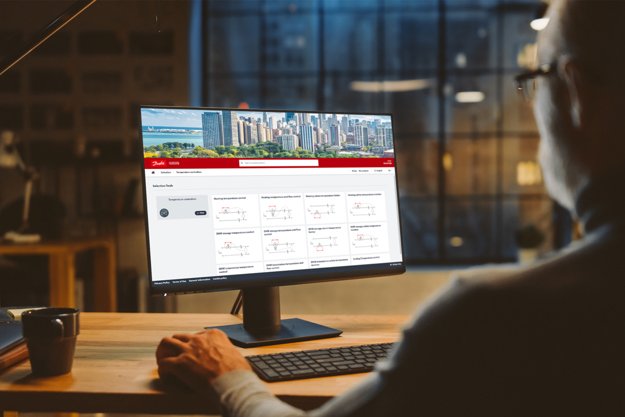

Case stories
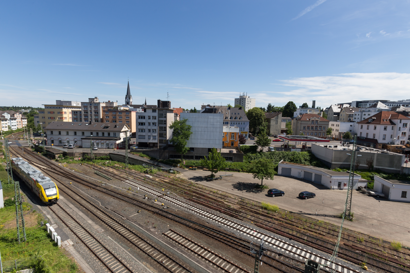

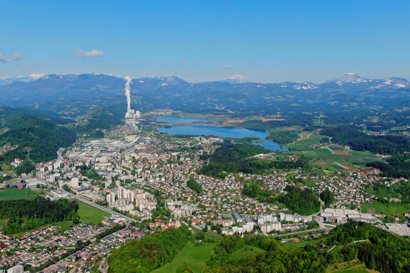
Videos
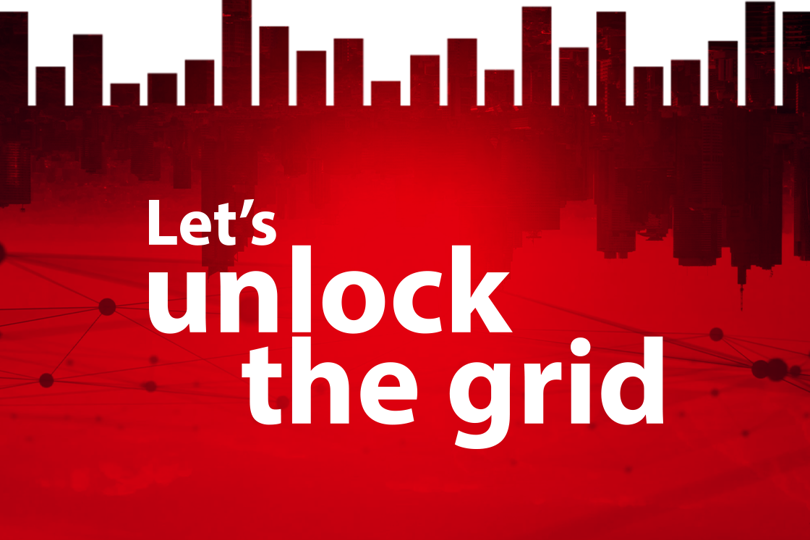
Unlock the grid to its full potential
We can help utilities to optimize their supply of district heating to cities with a positive impact on decarbonization and reduced energy consumption. It's time to unlock the grid's full potential for ultimate cost-effectiveness, energy-efficiency and a resilient path to a greener future.


